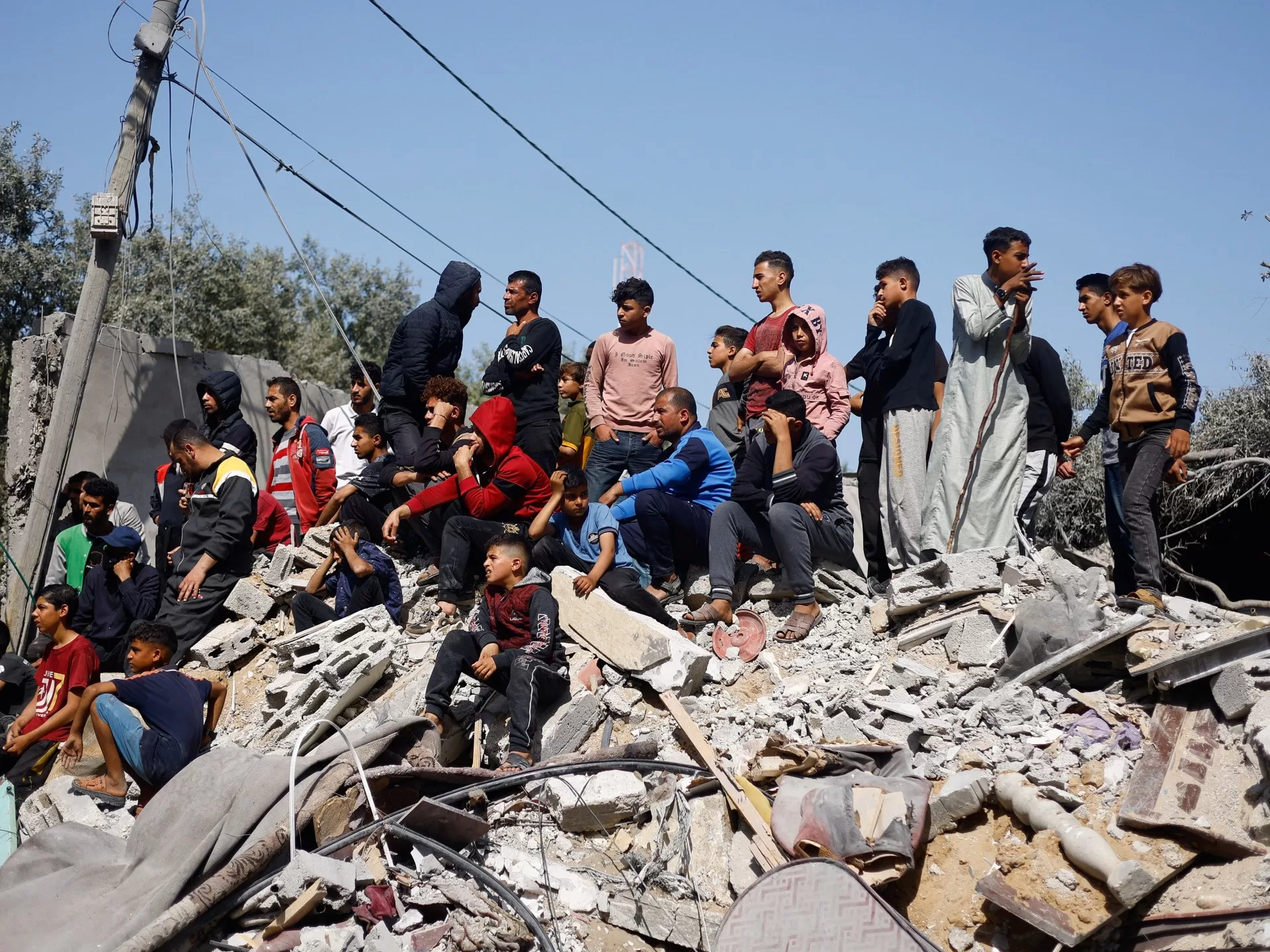Israeli objections to the return of displaced residents to their homes in Gaza is a key issue holding up the negotiations, Qatari officials said on Wednesday. Meanwhile, Hamas said that it will not budge on its conditions to release captives it holds in the besieged and bombarded territory.
Alongside the United States and Egypt, Qatar has been running behind-the-scenes talks in a bid to secure a truce and the release of Israeli captives in exchange for Palestinian prisoners held in Israeli jails after nearly six months of war.
“The return of the IDPs [internally displaced people] to their homes, which the Israelis didn’t agree to yet … is the main point we are stuck on,” Qatar’s Prime Minister and Foreign Minister Sheikh Mohammed bin Abdulrahman bin Jassim Al Thani told a news conference in Doha.
Another outstanding issue is the number of Palestinian prisoners to be released by Israel in exchange for each hostage freed by Hamas, Sheikh Mohammed said, noting however that he believed this “can be bridged”.
However, Hamas’s senior political leader Ismail Haniyeh said on Wednesday that his movement will stick to its conditions for a ceasefire in Gaza. The Palestinian group insists that an Israeli military withdrawal must happen before it releases the remaining captives taken in its assault on southern Israel on October 7.
“We are committed to our demands: the permanent ceasefire, comprehensive and complete withdrawal of the enemy out of the Gaza Strip, the return of all displaced people to their homes, allowing all aid needed for our people in Gaza, rebuilding the Strip, lifting the blockade and achieving an honourable prisoner exchange deal,” Haniyeh said in a televised speech marking al-Quds (Jerusalem) Day.
Israel has said it is interested only in a temporary truce to free the captives, while Hamas has said it will let them go only as part of a deal to permanently end the war.
Sticking points
Sheikh Mohammed said the major sticking points remained the same as those that stymied a deal during negotiations in Paris in February.
Talks were set to resume in Cairo last Sunday, Egyptian TV channel Al-Qahera reported, two days after Israeli Prime Minister Benjamin Netanyahu gave approval for fresh negotiations.
Israel and Hamas have traded blame for the failure in achieving a deal.
In recorded comments shown at a Hezbollah meeting on Wednesday, Haniyeh said Israel “continues to procrastinate stubbornly, and does not respond to our fair demands for an end to the war and aggression”.
The day before, Netanyahu’s office claimed, after an Israeli negotiating team had returned from another round of discussions in Cairo, that Hamas has hardened its stance.
“In the framework of the talks, under useful Egyptian mediation, the mediators formulated an updated proposal for Hamas,” the premier’s office said.
However, senior Hamas official Basem Naim said on Tuesday that the group had not been sent any new proposals.
No effect
The US said on Wednesday that it did not expect the Israeli strike that killed seven World Central Kitchen workers in Gaza to affect ceasefire talks.
“The ceasefire and hostage negotiations are ongoing,” White House national security spokesman John Kirby told reporters in a briefing. “I wouldn’t anticipate any particular impact on those discussions as a result of the strike yesterday.”
He said the incident was not a standalone in the conflict, in which too many aid workers have been killed. “It’s not the first time that this has happened and so yes, we’re frustrated by this,” Kirby said.
United Nations spokesperson Stephane Dujarric on Wednesday said the intergovernmental organisation had suspended movements at night in Gaza for at least 48 hours to evaluate security issues following the incident.
The UN’s World Food Programme is continuing operations during the day, including daily efforts to send convoys to the north of Gaza “where people are dying,” Dujarric said.
“As famine closes in we need humanitarian staff and supplies to be able to move freely and safely across the Gaza Strip,” he told reporters.
